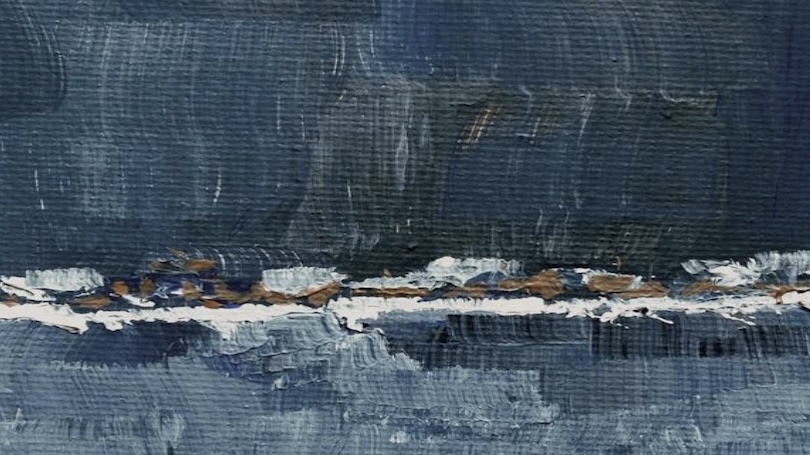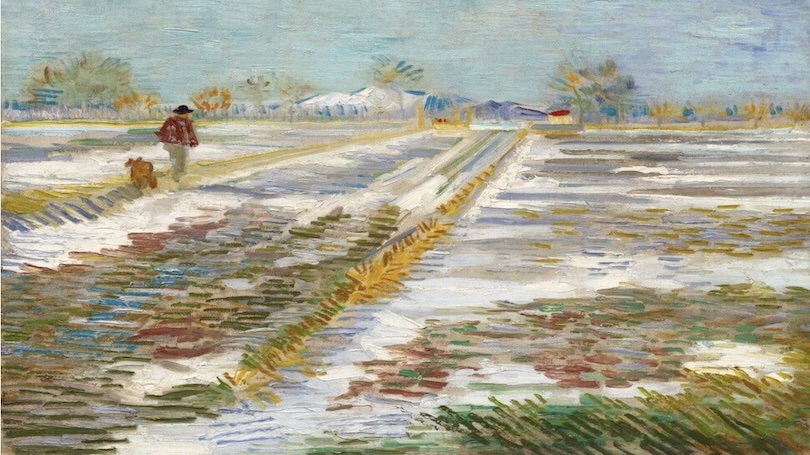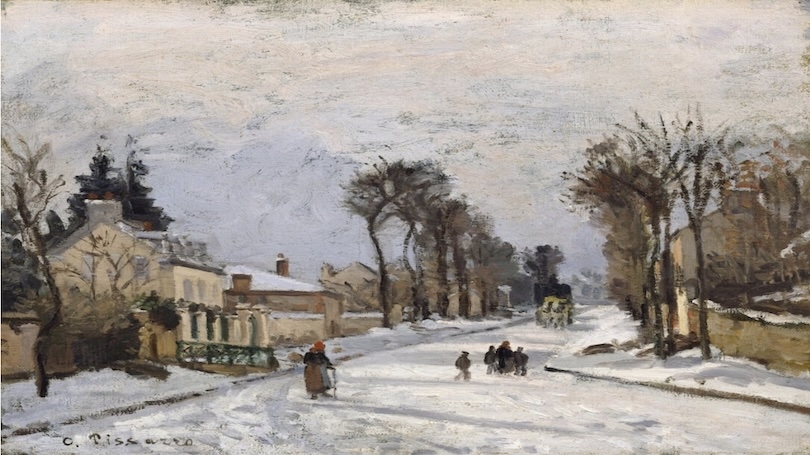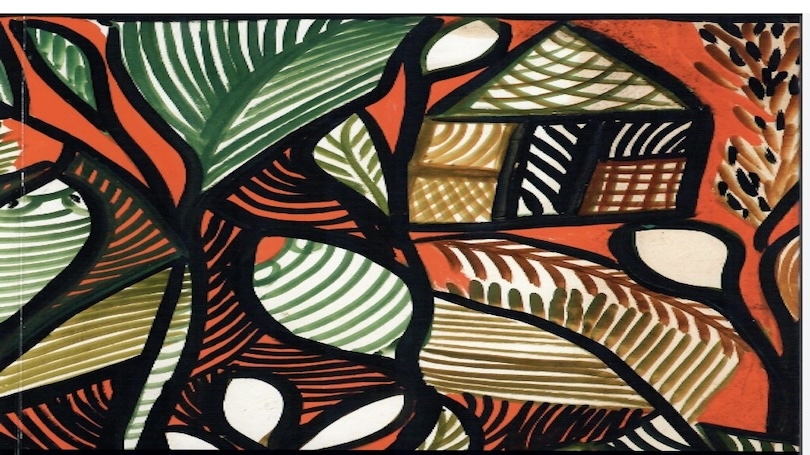
Spring 2024
French 1: 1 section: Oliveira @ 11: In this course, emphasis will be on speaking and dialogue with your peers. You will learn to introduce your family and friends, share what your daily life looks like, talk about what you do for leisure. Your final assignment will be to do an oral presentation in French describing your home town. Does not serve to satisfy Distributive or World Culture Requirements.
French 2: 2 sections: Mefoude @ 10 and McConnell @ 9L: In this course, you will expand your possibilities of expression by learning how to use the past and future tenses, to say where you've been and where you're going. You will share childhood memories and exchange ideas about plans for your education and career. While building your vocabulary, you will deepen your cultural knowledge with introductions to multiple francophone countries around the world. Your final assignment will be to choose a francophone country and do an oral presentation for your peers on its history, geography, architecture, art or traditions. Does not serve to satisfy Distributive or World Culture Requirements. Prerequisites: French 1 or qualifying placement through the French Placement Exam.
French 3: 3 sections: Novak@ 11 and Zidouh @ 9L and 10: In this course, you will explore several themes of contemporary life and learn to discuss travel, technology and its influence, wellness and healthcare, and social relationships. Your final assignment will be to seek out information on a current issue facing a francophone country—the environment, racism, poverty, freedom of speech, immigration, the colonial past, religious conflicts—and present it to your peers through a medium of your choice: film, interview, blog, skit, music or poster. Does not serve to satisfy Distributive or World Culture Requirements. Prerequisite: French 2, French 11, or placement through the French Placement Exam.
French 11: 1 section: McConnell @ 10: This 1-credit course is designed for students who have studied French for one to three years in high school, or those who have been exposed to French through family ties or have spent some time in a Francophone environment. It is also suitable for students with little or no knowledge of the French language, but who have a strong background in another Romance language (i.e. Spanish, Italian, Romanian, Portuguese, Catalan, and also Latin). French 11 is an accelerated course that combines French 1 and 2 in one term, offering an exciting and fast-paced atmosphere in which to learn French. The course will have a web-based component, which, through cultural, grammar and multimedia learning activities, will complement face-to-face work and prepare students for in-class work. Students will learn to talk about familiar events in the present and the past, as well as formulate plans for the future. Weekly cultural videos will situate in context the grammatical content of the course, making it relevant and meaningful. Students will be actively engaged in a variety of creative written and oral activities that will help them develop their language skills. Upon successful completion of this course, students will be able to sign up for French 3 or apply for our French LSAs in Lyon or Toulouse. With the goal of facilitating the acquisition of the target language, this course will be conducted entirely in French. Prerequisite-One year or equivalent of university level instruction in a Romance Language or Latin; or three high school years of instruction in a Romance Language or Latin; or native speaking proficiency in a Romance Language; or permission of instructor.

French 8: 2 sections: LaGuardia @ 2 and Novak @ 12: Exploring French Culture and Language expands on the skills acquired in the French language sequence (French 1, 2, 3) as well as offering a transition to French 10 and upper-division courses that call on strong foundations of cultural knowledge. This class introduces students to contemporary and historical French and Francophone societies by focusing on topics such as evolving political and regional identities, writing and literature in the expression of identity, gender relations, the role of the media, and the culture of daily life. Students expand their active use of French, refine communicative, reading, and writing strategies, and comprehensively review grammar. Course work includes active participation in class discussions, oral presentations, and regular reading and writing assignments in the areas of narrative and poetry, cinema, music, and journalism. Prerequisite FREN 3, or equivalent preparation. Degree Requirement Attributes-Dist:SOC; WCult:W. NRO eligible.
FYS 07.06: Kane-@ 2: Reimagining the Myth: Paris in Literature and Film: In the Western imagination, the idea of the city of Paris is almost always linked to romance. While couples dream of future Parisian honeymoons or vacations, in reality, living and becoming in the "city of love" are a good deal more complicated than the romanticized version with which we are so familiar. What does it mean to live in Paris, to have a "Parisian" identity? In what ways might history (the trauma of World War II, for example, or the French wars of decolonization) play a role in the construction of these identities? What roles do gender, culture, immigration, and economic status play in incubating these identities in this particular, almost mythically idealized place? Through analyses of texts by writers and directors who have lived in, loved, and sometimes even hated Paris, we will discuss the ways in which the spaces of the city participate to a certain extent in the formation of the people who exist in them, and the relationships among those people, who are shaped by memories linked to these spaces in a multiplicity of ways. How can we begin to reconceive the myth of what Paris is in our collective imagination to better understand the reality of the lived experiences of people in the city and its surrounding suburbs? Ernest Hemingway, in A Moveable Feast, writes: "If you are lucky enough to have lived in Paris as a young man, then wherever you go for the rest of your life it stays with you, for Paris is a moveable feast." A moveable feast, certainly; but an extremely complex one. Works may include writings by Gary, Modiano, Colette and Baudelaire, and films directed by Varda, Doucouré and Truffaut.

French 10.10: Du mal/On Evil: St. Clair @ 10a: Offers students a two-fold introduction into Studies in French and Francophone Literature. On the one hand, FR10 serves as a survey course in which students will read texts ranging from the earliest attested writings in French to the contemporary period, covering genres from poetry, essays, autobiography, theatre, novels, and film. At the same time, FR10 introduces students to the basic vocabulary and concepts of literary analysis in French allowing them to pursue and hit the ground running in any advanced studies in French at Dartmouth: how might we talk objectively about the rhythm of a line of verse and what does that tell us about how we might "read" it? How do we spot the endlessly weird ways in which narrative forms allow us to read everything from a sonnet to a novel to a film? How do we spot gender, race, desire, history in a text? How do we think about theatrical forms as historical-social in nature? How might we think about cinema as a text that has its own forms and logics of meaning? Readings can include: Villon, Marie de France, Rutebeuf, Montaigne, Rabelais, du Bellay, Louise Labbé, de La Fontaine, Molière, Voltaire, Diderot, Duras, Balzac, Baudelaire, Hugo, Flaubert, Lamartine, Desbordes-Valmore, Sartre, Camus, Césaire, Apollinaire, Despentes; with approaches to reading by J.L. Austin, Genette, Freud, Glissant, Mbembe, Cixous, bell hooks, Monique Wittig, Etienne Balibar, and others. NRO eligible. Prerequisite: French 8 or permission of the individual instructor. Degree Requirement Attributes: Dist:LIT; WCult:W.
French 22: Introduction to French Literature I: the Middle Ages and the Renaissance-LaGuardia @ 12:Medieval France - its art, architecture, technology, philosophy and literature - exerted an unparalleled influence throughout Europe. Studying the first texts written in French, as well as the manuscripts in which they circulated, will shed light on the nature of French culture. We will examine defining issues of the period: the transition from oral to written expression, the invention of printing, debates concerning the status of women, Renaissance humanism, scientific inquiry, religious reform and conflict. Texts may include La Chanson de Roland, selected poetry, and works by Balzac, Baudelaire, Benjamin, Colette, Varda, Gary, Barthes, Duras, Slimani, and others. Prerequisite: A course in the FREN 10 series or permission of the instructor. Dist:LIT; WCult:W. NRO eligible.

FREN 40.09: Classical French Comedy: Molière Past and Present: Beasley @ 3a: Molière is France's best known and most universally loved playwright. Over three hundred years after his death, his plays continue to dominate the French stage and stages across the world. In this course, we will explore Molière's creative genius to understand his profound and lasting influence. The last third of the course will be devoted to an in-depth study of "Molière in the Park," a theatre company in Brooklyn founded in 2019. This class is taught in English. XL with THEA 10.72. Distributives-ART, INT. NRO eligible. NO prereqs, and it can count towards the French major/minor!
French 53.09: Literary Theory in French: St. Clair @ 2a: How can we describe the nature of the relation binding a word to a thing, languages to worlds? How do we know that a word "stands for" (or, represents) an idea, an emotion, a thing, a place, or a person? How do we know what a thing like a stoplight is telling us, that it is standing in for not merely an idea but a system? In what way are the apparently most unassuming things—our clothing, our vacation plans, our hometowns or the food we eat—"saying" things about us and the world, and how might the different answers to such questions change the ways in which we think about ourselves, others, our world(s)? Such questions are the domain of what we call semiotics (or: the general science of signs, as Ferdinand de Saussure famously put it) and in this course, we will study some of the core theoretical formations from the twentieth century which allow us not only to ask "what do signs do and how?," but to grapple with what "the stake of signs" (what they are, how they function) may entail for us linguistically, aesthetically, philosophically, and politically. Along with texts ranging from de Saussure to Derrida, we will also seek to bridge the gap not merely between text (i.e., signs) and context (the social-historical situations in which they get produced and produce meaning), but between theory and literature as well. NRO eligible. Degree Requirement Attributes: Dist:LIT; Lang:LRP; WCult:CI.
- Undergraduate
- Study Abroad
- Careers and Opportunities
- Overview
- Internships
- Apprentice Teacher Info
- Student Awards and Prizes
- Arianna Pagani ’93 Memorial Prize In French And Italian
- Bruno Tollon Prize In French Studies
- Cloise Appleton Crane Prize In French And Italian
- François Denoeu Memorial Prize
- French Consulate Prize
- George E. Diller Memorial Prize
- Lawrence And Sheila Harvey Prize In French And Italian
- Paul D. And Marilyn M. Paganucci Prize In Italian
- Pray Modern Language Prize In French And Italian
- Ramon Guthrie Achievement Award In French
- The Colette L. Gaudin Prize in French
- Thomas J. Gaudet, Jr. Memorial Prize
- Endowed Research Grant
- Lectureship opportunities in Lyon and Toulouse
- What you can do with a major or minor in French and Italian
- News & Events
- People
Back to Top Nav
Back to Top Nav
Back to Top Nav
Back to Top Nav